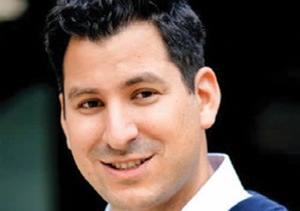
When we ask students to identify the most pivotal day in modern Israeli history, most if not all will answer the 15th of May, 1948. Indeed, that is the day when the nation marked its independence and the point where Zionism transformed from a quest for nationhood to a fight to preserve it.
But if you challenged those same students to note which other month in the calendar holds the most dramatic events for Israeli national history, many would fall silent. Yet, there is little doubt that this is the month of November—and it is for this reason that November deserves to be recognized as Israeli History Month.
November is a period of both tragedy and triumph in the chronicles of modern Israeli history and within those 30 days are some of the most dramatic and telling stories of the nation’s existence.
For the sake of younger students, it is likely worthwhile to work backwards starting with the most recent key event—that of November 1994. Like so many momentous developments in human history, we can recall exactly where we were when we heard the news that Yitzchak Rabin had been shot and killed. Rabin’s assassination deserves to be marked not simply for its tragedy and the loss of an Israeli leader. But the events surrounding that murder have in many ways defined Israeli history and society ever since.
Rabin’s assassination was not a classic political assassination, but is rather reflective of the most bitter schism to define Jewish society in many generations. It therefore deserves to be addressed not simply as a historic but a sociological event that continues to define how Israeli culture and society should be debated and understood.
But November is also home to several events that mark triumph and success in the modern Zionist and Israeli experience.
Notably, the document that is arguably the most important statement in modern Zionist history—the Balfour Declaration—was released in this month. Perhaps viewed as of minimal significance when it was issued by a British power that likely thought the Zionist movement would disappear as quickly as it emerged, the Declaration provided the early Zionists with an official stamp of approval and set the stage for the events that would eventually lead to independence.
No less consequential were the events of November 1947. By that point, and in the wake of the Holocaust, the world had come to understand that the quest for a Jewish state in then-Palestine was almost inevitable. Recognizing that Jewish statehood violently clashed with the wishes of the local Palestinian population, the United Nations proposed the ill-fated “Partition Plan,” to split this small strip of land into two states for two people. As we all know, that call for compromise was immediately rejected by the Palestinian leaders—and the rest as we say is history…
That history also marks a telling low point for Israel in global affairs when the infamous “Zionism Is Racism” UN Resolution 3379 was passed on November 10, 1975. This declaration is again far more than a historic document but is rather reflective of how the Jewish State has been denied any hope for international legitimacy despite our ongoing desperate attempts to make this a peaceful home for all of its residents—regardless of ethnicity, religion or political affiliation.
It is of course a gross understatement to say that Israeli and Zionist history is complex and complicated. We are a nation of contradictions and surprises. This is a place with deep internal tensions and an ongoing war. Yet Israel is also a bastion of cultural, religious and scientific progress and achievement.
The events of November are a glimpse into that complex and dueling identity where victory and achievement are intertwined with tragedy and frustration. The historical events that shaped Israel’s modern history are the basis of a series of videos and experiential activities produced by Unpacked for Educators, available for free for teachers and community organizations, bringing these lessons and complexities to life.
This month therefore serves as the ideal lens to share with students of all ages and backgrounds a crystalized view of the Israeli national history—and how these and other events impact on the nature of the country today, and promise to define its future.
Dr. Noam Weissman is the SVP of education at Jerusalem U, which has launched a program for November called Israel History Month on Unpacked for Educators, its Israel education resource website.













